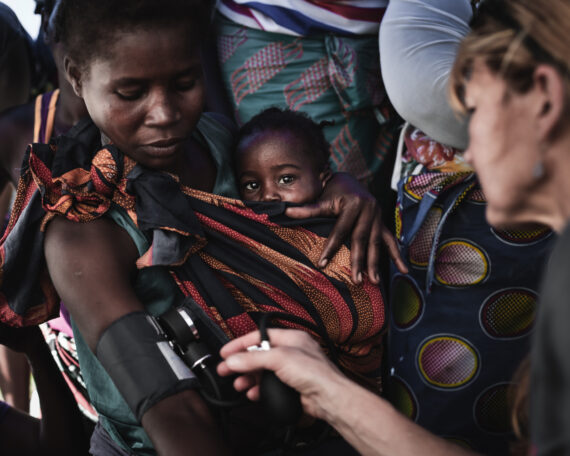“Fighting Hunger and Obesity in Africa,” by Tim Wainright, San Diego Voice and Viewpoint
World hunger experts and activists are targeting the wrong enemy in the fight against malnutrition worldwide. Instead of just focusing on ensuring food insecure people receive enough food, they must also focus on chronic illness and infections. Such chronic illnesses, along with parasites which steal nutrients within a person’s body, are a major cause of malnutrition. To address these causes, world hunger experts must also help more people gain access to clean water and private toilets.
“Harvest season provides meager respite to South Sudan’s ongoing hunger crisis,” by UN News Center
The harvest season in South Sudan, while meager, has provided some relief from the nation’s dire food crisis. However, continuing inflation and conflict stand to make the situation worse again in 2018. Food prices have increased by over 200 percent, with reported maximum rates of inflation at over 500 percent. The conflict has also devastated the country’s fertile regions, displacing farmers and obliterating food stock. South Sudan is also set to enter its dry season soon, with the lean season, when families run out of food, predicted to arrive three months earlier in 2018.
“Seven Weeks after Hurricane Maria, Puerto Ricans still can’t access programs that fed millions in Texas and Florida,” by Caitlyn Dewey, Washington Post
Disaster relief SNAP funds issued in Florida and Texas in the wake of Hurricane Irma have been denied to residents of Puerto Rico in the aftermath of Hurricane Maria. SNAP benefits to the island have been restricted to block grants of $1.9 billion a year, not nearly enough to service the needs of the population. After Hurricane Maria, the island’s people have suffered tremendously, but the same programs distributed within days in Texas and Florida are still nowhere to be found on the island, seven weeks later.
“More Than a Million People in South Sudan Are on the Brink of Starvation,” by Sam Mednick, Associated Press via Time
One and a quarter million people in war torn South Sudan are on the brink of starvation. Hunger experts attribute the famine conditions entirely to the now five year long civil war which has displaced hundreds of thousands and decimated the new nation’s ability to produce food. Rainfall in South Sudan was sufficient to raise the food necessary to prevent starvation, but war has halted this. Six million South Sudanese struggle with severe food shortages, over 56 percent of the population. The government and the rebels have both used hunger as a weapon, destroying food stock, limiting food allowances for the populations under their control, and confiscation of even small amounts of food carried by civilians across front lines.



